|
To celebrate the launch of BritCrime’s first free online crime fiction festival, 11-13 July, I have teamed up with BritCrime authors to give away one fabulous prize.
You could win a gift bundle of ten print books, including new releases by Colette McBeth and Sarah Hilary, and MJ McGrath’s Gold Dagger longlisted White Heat. This giveaway is open internationally. One lucky winner will win all ten books. Please complete the entries in the Rafflecopter before midnight 10th July for a chance to win. To learn more about the BritCrime festival, please visit http//britcrime.com and sign up to the newsletter. There will be giveaways and live Q&As with bestselling British crime fiction authors hosted on BritCrime’s Facebook page 11 & 12 July. The Magpies + What You Wish For by Mark Edwards No Other Darkness by Sarah Hilary The Life I Left Behind + Precious Thing by Colette McBeth White Heat by M J McGrath Beyond the Rage by Michael J Malone Follow the Leader + Watching Over You by Mel Sherratt The Harbour Master by Daniel Pembrey Good luck! a Rafflecopter giveaway
0 Comments
by Rana Asfour In two days' time (on July 1) the winner of the Desmond Elliott Prize for 2015 will be revealed at a ceremony at Fortnum & Mason, UK. The three shortlisted titles chosen from a longlist of ten books published in the last year by British and Irish debut novelists include 'Elizabeth is Missing' by Emma Healey (Viking), 'A Song for Issy Bradley' by Carys Bray (Hutchinson) and 'Our Endless Numbered Days' by Claire Fuller (Fig Tree). In a press release, Chair of judges Louise Doughty noted: 'It’s fascinating to see that each writer arrived here from slightly unorthodox beginnings and it’s a testament to The Desmond Elliott Prize that it identifies and rewards the very best new writing talent, whatever the author’s date of birth. Our shortlist shows that there’s no age limit on being a sparkling new arrival on the literary scene'. Claire Fuller, 48, originally studied sculpture at Winchester School of Art, specialising in wood and stone carving, then ran her own marketing company for 23 years. She began writing fiction in her 40s, spurred on by National Novel Writing Month (or “NaNoWriMo”), an online phenomenon which challenges participants to write a novel in a month. Emma Healey, the youngest of the shortlisted authors at 29, took home a C in GCSE English in her school days, but, like Fuller, brings an artistic background to her writing – her first degree was in bookbinding, after which she worked in an art gallery. She eventually enrolled in the UEA Creative Writing Course before 'Elizabeth is Missing' went on to sell at auction and become a bestseller. Carys Bray, 39, has spoken openly about the restrictions that kept her from writing until recently. Just five years ago she and her husband decided to remove their family of six from the Mormon faith. She now also teaches Creative Writing and is completing a PhD. The Books: In a review I wrote about 'A Song for Issy Bradley' just before it hit the shelves, I described it Carys Bray book as a stunning heart-warming story about loss that is brave, even funny and so heartbreaking in its sincerity that you'll need to keep that tissue box handy. In short, this is a book about a family, any family, who has to conjecture enough faith to miraculously resurrect itself from the abyss after having lost one of its own. For the full BookFabulous review, click HERE & to read an excerpt, click HERE This is about elderly Maud who although is slowly losing her grip on every day life as she battles with Alzheimer's, yet remains consistently insistent that her best friend Elizabeth is missing and in danger. Ignoring everyone's advice to the contrary, Maud, armed with handwritten notes she leaves for herself resolves to discover the truth and save her friend. Her quest opens up a seventy-year-old mystery. One that everyone has forgotten about. Everyone, except Maud. To read a review and an excerpt, click HERE. This is the story of eight-year-old Peggy Hillcoat, whose father James, a survivalist, kidnaps her to live in a forest and convinces her that the whole world is no more and everyone on it has disappeared, including her home in London and her mother. As time goes on, Peggy comes to discover for herself the events that brought her to the forest and finds a way to return to civilisation. After Peggy's return, her mother begins to learn the truth of her escape, of what happened to James on the last night out in the woods, and of the secret that Peggy has carried with her ever since.
To read an excerpt, click HERE & for a review, click HERE by Rana Asfour Abu Dhabi-based New Zealander William Moloney has just released his debut historical fiction entitled ‘The Battle of Messines Road’. The book is based in large part on the actual war diary of his late grandfather JK Moloney, who served on the Western front from 1915 – 1917. The diary can be found in New Zealand’s National Archives. ‘The Battle of Messines Road’ is, on the one hand, a novel about 10-year-old, Commando Comic series reader, Zac Le Burn, from Wellington, who strikes an unlikely friendship with Messines Road resident, Mr. Moloney, after a miscalculated decision by Zac on his daily paper run lands him with a ‘punishment’ that involves him reading to the nearly blind, elderly old man. On the other hand, it is, in the broader sense, a book about New Zealand’s involvement in World War I, and the lasting effects it has had on that country. Arriving for his first day at Mr. Moloney’s whose kitchen smelt ‘like bleach and damp were in a battle to the death’ and whose living room was musty and dank, he is handed a folder of papers to read about ‘a writer on a troopship, going to war’. Zac, at first uncomfortable with anything to do with the subject of war, as it not only reminds him of his father serving in Vietnam but also threatens to awaken ‘the big scary dangerous’ which Zac is in constant battle with himself to control, finds he is soon absorbed in the events of the diary. He decides that war sounded a lot ‘like school camp’ when it came to the food, the cleaning up and the rules. The readings reawaken Mr. Moloney’s long ago memories of a time that saw him on an adventure he would never have got to have but for the war. In an early journal entry in Steenbecque, France, dated 17 April, 1916 JK Moloney writes: ‘With us [New Zealanders], it is fun all the way. The saving grace of the Anzac Corps is their capacity to make the most of the shining hour. If the truth be known, this crowd absolutely enjoy the war’. Although on a more sober note, he continues, ‘Perhaps if our country were invaded, our homes destroyed and our national life upset, we might not have the same outlook’. The readings also serve to rouse a 10-year-old boy’s curiosity to learn about the places and people mentioned in the diary. A gradual kinship blossoms between the two characters as they discover that they have both started to look forward to their reading time together. Eventually, as the two hatch a plan to battle against ‘all the unfairness’, they land themselves in a spot of trouble with Mr. Moloney’s daughter and Zac’s mum, whom they have nicknamed the ‘brass hats’ as well as some boys from the neighbourhood. Not content with the magnanimous task of taking on the 'Great War', the author has chosen to set the novel in the year 1968 in which New Zealand troops are busy fighting in Vietnam; A time that saw a vocal and well-organised anti-war movement in New Zealand with many accusing the New Zealand government of simply doing what the US told it to. All this loomed large in the lives of service families making it a difficult time for army wives and their children as is very evident in Zac’s everyday dealings with those around him as well as his life at home with his mum and two siblings. ‘I was interested in the Vietnam War because I think it provides a counter point to the First World War,’ says author William Moloney. ‘The two wars are so very different, in scope, in involvement, in popularity. But in the end, they are both wars that involved New Zealand soldiers. The First World War involved or affected, in some way, every person in New Zealand. More than that, it was a war fought by a very British version of New Zealand. The Vietnam War was one fought by a professional New Zealand army. We didn’t have conscription. So, the number of troops, and their experience and their families’ experience, was very different from that of World War I when the whole country was involved. They were alone in many ways, especially as the Vietnam War was so unpopular’. 'In November, it will be fifty years since the end of the Great War. I know this seems a long time to you but it's not, not in the scheme of things. Only fifty years to change from it being shameful for not doing your duty to shameful for doing it' - Mr. Moloney to Zac. Author, William Moloney, holds a Masters degree in War Studies and as such it is highly evident that a lot of research has gone into his novel. There are so many parts that will prove illuminating and enjoyable to many readers even those, like myself, who might not necessarily, usually be drawn to the subject. It was lovely to dip in and out of the journal that alternated between the writer’s actual diaries (non fiction) and old Moloney’s running commentary (fiction) during Zac’s reading as he tries to make sense of his time at war. Since author William Moloney never met his real grandfather, who died a few years before he was born, he works around the character traits evident in the diary and spins them out to a re-imagining of what his grandfather might have been likely to be, do or say when he was older. ‘Not a better man, not a worse man, just a different man,’ says William Moloney. ‘The reason I named the character in the book Mr. Moloney was out of respect for the nature of the diary. I felt that if I changed the character’s name a link to that historical document would be lost’. As Zac’s readings go on, we find in Mr. Moloney a character trying to make sense of a war he is unable to recover from and to reconcile it with a war, that fifty years later, is shifting the country’s attitudes yet again. Mr. Moloney alternates between instances of happiness when he recalls his travels and the people he met and the places he passed through, to instances of sadness and utter desolation when he remembers the scores of young, promising lives wasted on the battle ground in a war where everyone thought they ‘were doing the right thing’ and yet was nothing less than ‘God-awful’. Ultimately, as Zac reads out the entries, readers are treated to a wealth of information that start from when Mr. Moloney boards the troopship ‘Tahiti’ in 1915 to Egypt and then all the way to the Western Front in France where he serves until 1917, when the diary ends. Throughout, JK Moloney's beautiful writing, wit, keenly observant eye, sense of humour and honesty even when it hurts to do so, come through. His recording of key historical events and first hand encounters with wartime figures is just priceless. Moloney writes of the Armenian refugee camps as well as the Prince of Wales’s visit to Alexandria in 1916. He describes his encounter with the ‘first vista of the war’ at Armentière in France, of the desolate ‘bloody, muddy ditches’ that are the trenches, and of ANZAC Day, Chunuk Bair, Gallipoli, Messines, Flers and the horror of Passchendaele. He writes of Kitchner, Ponsonby, Lloyd George, William Ham and his meeting with Rudyard Kipling and so much more. The journal offers a thorough detailed image of life during World War I not only for the soldiers but for the civilians caught in its crossfire as well. 'In Gallipoli, the boys have shown themselves to be the equal of anything the world has produced; some say they are the best ever. They did their duty like heroes and never complained' - JK Moloney, diary entry El Dabba, Christmas morning, 1915 However, it serves well, at this point, to mention that many of the accounts of the characters’ lives are fictitious and based on the author’s imagination. ‘I loved trying to piece together the lives of these men after the war but they are not fact, they are fictionalised accounts of their lives, as remembered by a shaky, and failing memory,’ he says. ‘Based on what I could find out about them, I then placed them in the mouth of an old man remembering his youth, remembering the friends of his youth. And as we all know, memories are not sacred. They are not the truth; we shape them, by our experiences, by the lives we have lived’. After a while, one gets the impression as if in fact two books run simultaneously side by side. This in no way detracts from either storyline but it was interesting to find out that, in fact, that is exactly how the novel came about in the first place. ‘I think it probably, all told, took about 12 years to write the book. I first read a photocopied diary in 2002 and so the first thing I had to do was type it out. And as it runs to about 120,000 words this took me a decade or so. I didn’t work on it everyday or even every month, what with work, kids and life. In 2011, I set proper time for it, finished the typing and started researching the stories of the men mentioned in the diary. I then tried to write a story to fit around the diary that could enhance it to give the reader context. Writing Zac’s story took 18 months to write and another six months to edit’. Apart from the theme of war, many readers will identify ‘The Battle of Messines Road’ as a novel about family, friendship, loss, and ultimately love. It is also about religion, loyalty, national identity and the rotten business that is war and politics. The two intertwined narratives will hold a wide-range of reader interest and the perspective of 10-year-old Zac will capture the attention of the young adult market while still appealing to more mature readers. According to records, it has been argued that the ‘Battle of Messines’, from whence the novel borrows its title, was the most successful local operation of World War I, certainly of the Western Front. Carried out by General Herbert Plumer, Second Army, it was launched on 7 June, 1917 with the detonation of 19 underground mines underneath the German mines. It was the first time Australians and New Zealanders had fought side by side since the Gallipoli campaign of 1915. Although the offensive initially recorded very few casualties, as the day wore on, though, German guns began to bombard the newly captured areas and many New Zealand and Allied troops were killed. By the time the New Zealand Division was relieved on 9 June, it had sustained 3700 casualties, including 700 dead. The book is out now and can be bought HERE. About the authors:
William Moloney is a 40-year-old New Zealander. He holds a BA from Massey University in History, Economics and Politics and an MA from Kings College, London, in War Studies. He has worked as a military and political analyst for the last ten years and currently resides in Abu Dhabi, UAE. He is married with three children. J.K. (Jack) Moloney was a 22-year New Zealand law-student when he left for war in 1915. After being returned to New Zealand as a casualty he lived in Christchurch, working as a barrister. During his life, he became prominent in region as a rugby and athletics administrator including being President of the Canterbury Rugby Union. He wrote several books on rugby including 'Rugby Football in Canterbury, 1929-1954 (1954) and 'The Ranfurly Shield History' (1960). He was married to Margret and had three children Barbara, Phillipa and David. He died in 1971. Whether it's a paper copy or an ebook, having any reading material very close to water is always tricky. However, scientists along the years have been hard at work to produce books that you can take to the beach or read while soaking in the bath. Earlier science: A few years ago a team at Istituto Italiano di Tecnologia (IIT) in Genoa, Italy managed to get the molecules that make up paper (called monomers) to connect with new nano-particles they created in the lab. Together, they form a polymer, which is then mixed in what science class refers to as a “solution” to make a fancy “polymeric matrix” filled with nanoparticles. So, basically, they stir in their fancy nanoparticles in a unique way so that they stick to the paper molecules. (See full article here). After the nanoparticles get busy with the paper, you can sprinkle in other things to give paper super-powers. Want magnetic paper? Just add in some iron oxide nanoparticles. Are you a germophobe? Silver nanoparticles will make the paper antibacterial. There is a nanoparticle for waterproofing as well. Additionally, a clear wax sealant was also created to prevent running ink and to stop pages from becoming soggy and tearing when wet. Banks in Australia use the technology to prolong the life of banknotes and to reduce the risk of forgery. 'The Greater Bad', an ebook by Alan Cork, was the first book ever to receive such a treatment. And Now ... Bibliobath: A Kickstarter company created by Dutch-Chinese husband and wife team Jasper Jansen and Wing Weng. Depending on your pledge amount, you can either get a copy of short stories by Mark Twain, a selection of poems by W. B. Yeats, Shakespeare’s Macbeth, or, for a limited time only, a special edition of 'The Art of War' by Sun Zi. Check how it works and what you can do HERE. The You-Bumi: If funds are limited and you still want to enjoy your favourite book by the beach or pool, the Japanese have got you covered for every eventuality, including reading in the bath. The You-Bumi is that brilliant invention. Click HERE for details on cost and where to buy. Ben Meadows: This site offers waterproof writing accessories to write your way to a better day—rain or shine! Check it out HERE.
Do you feel you 'need' to write? Feel there's a story inside you bursting to be told? Words dominating your thoughts and sentences parading before your very eyes? Still wondering what's stopping you? Here are some quotes to help you discard any doubts you may have about your ability to pen the future literary masterpiece and to set you on your way to becoming that fearless writer you might be destined to become. It’s none of their business that you have to learn to write. Let them think you were born that way. My favourite by Hemingway: 'The Sun Also Rises' If you can tell stories, create characters, devise incidents, and have sincerity and passion, it doesn’t matter a damn how you write. My favourite by Maugham: 'Of Human Bondage' Don’t try to figure out what other people want to hear from you; figure out what you have to say. It’s the one and only thing you have to offer. My favourite by Kingsolver: 'The Lacuna' Anecdotes don’t make good stories. Generally I dig down underneath them so far that the story that finally comes out is not what people thought their anecdotes were about. My favourite by Munro: 'Something I've Been Meaning To Tell You: 13 stories' There’s no such thing as writer’s block. That was invented by people in California who couldn’t write. My favourite by Pratchett: 'Dodger' There is no greater agony than bearing an untold story within you. My favourite by Angelou: 'I Know Why the Caged Bird Sings' Just write everyday of your life. Read intensely. Then see what happens. Most of my friends who are put on that diet have very pleasant careers. My favourite by Bradbury: 'The Halloween Tree'
A free online crime festival will run for the first time in July 2015, as a result of a grassroots initiative instigated by author Helen Smith. The festival boasts more than forty crime authors, including Eva Dolan, Mark Edwards, C L Taylor, Sarah Hilary and Mason Cross.
In a press release, Helen wrote about BritCrime.com 'We became friends after meeting at various literary events, and although we love attending festivals and enjoy meeting readers, it’s important to balance time spent at events with time spent writing. Festivals can also be expensive for readers, especially when travel and accommodation is factored in, so we founded BritCrime to provide free, accessible events that every reader can attend, wherever they live.’ BritCrime 2015 will take place 11 to 13 July 2015 and will feature live Q&A panel discussions hosted on Facebook, as well as informal ‘Meet us in the bar’ sessions for late night chat. The festival will provide updates from BritCrime authors attending New York’s ThrillerFest, as well as a look ahead to Theakston’s Old Peculiar Crime Writing Festival in Harrogate the following week, where many BritCrime authors will be in attendance. In the run up to the festival exclusive content will be available on the BritCrime website and social media platforms, including giveaways, video sessions and interactive Google Hangouts. More than 500 people have already signed up to receive the festival mailing list, which offers the incentive of a Kindle Paperwhite giveaway for one lucky subscriber. Edgar-winning author Alex Marwood was the first to sign up for BritCrime. ‘BritCrime is organised by authors, and it feels great to be in control of how the event goes. We’ve already reached more than 70,000 people via our online channels, and this is just the start of what we hope to achieve.’ Source: Press Release 'The Best Eid Ever' by Asma Mobin-Uddin, illustrated by Laura Jacobsen (2007) It's Eid, and Aneesa should be happy. But her parents are thousands of miles away in Saudi Arabia for the Hajj pilgrimage. To cheer her up, her grandmother gives her a gift of beautiful clothes from Pakistan, one outfit for each of the three days of Eid. She even prepares lamb korma, Aneesa's favourite dinner, which they will enjoy when they return from prayers. At the prayer hall, Aneesa meets two sisters who are not dressed in new clothes for the holiday. Aneesa discovers that the girls are refugees. With their father, they have fled from their war-torn country. Aneesa can't stop thinking about the girls and what Eid must be like for them. That's when Aneesa comes up with a plan to help the girls celebrate Eid and make it the best Eid holiday ever. To listen to a summary of the story see below: 'Under the Ramadan Moon' by Sylvia Whitman, illustrated by Sue Williams (2011) Ramadan is one of the most special months of the Islamic year, when Muslims pray, fast, and help those in need. Sylvia Whitman’s lyrical story, with luminous illustrations by Sue Williams, serves as an introduction to Ramadan—a time for reflection and ritual with family and friends. A detailed note about Ramadan is included. The author lives in Virginia and wrote this story so her son’s classmates could learn how he and his family celebrate this important time. The illustrator lives in England. To listen to a summary of the book, see below: 'The Jinni on the Roof' by Natasha Rafi, illustrated by Abdul Malik Channa (2013) Eight-year-old Raza is too young to fast, but he longs for the delicious parathas the grown-ups eat before dawn. The aroma of the flaky, golden bread tempts him. He cannot wait for the children’s breakfast, but he’ll get into trouble if anyone finds him up this early. Lying in bed, Raza hatches a plan. Will he get away with it? This is a delightful tale about a mischievous boy who learns the true meaning of Ramadan – patience and empathy. Age range 4 -8 years. NOT A BOOK ... HOWEVER... I've included this song 'Ramadan Moon' by Yusuf Islam (aka Cat Stevens) because it's one of the cutest things I've come across with regards to Ramadan and kids. Enjoy! According to the UAE's daily English-language newspaper 'The National', a coffee-table book recording the successes of 21 Emirati women in various fields including aviation, business, fashion, sport and film, was released at Le Meridian, Dubai on Sunday. 'Emirati Women Achievers', a 184-page coffee-table book, in English, has been published by UAE-based publishing company Xponent Media. The book was released by Mirza Al Sayegh, director of the office of Sheikh Hamdan Bin Rashid Al Maktoum, UAE Minister of Finance and Deputy Ruler of Dubai.
The woman behind the book, Meraj Rizvi, managing editor, Xponent Media, said that the 'Emirati Women Achievers' project took more than six months to complete. Some of the women featured are Alia Abdulla Al Mazrouei, chief operating officer of Mazrui Holdings; Film director Amal Al Agroobi; Amna Binhendi, Chief Executive of Bin Hendi Enterprises; Fatima Khalifa Al Enezi, an Emirates aircraft engineer; Lamya Abedin, designer and founder of the Queen of Spades; Mariam Othman, founder and director of Rashid Centre for Disabled; Dr Najat Mohammed Rashid, director of Medical Laboratories and Blood Banks; and Layla Abdul Aziz Al Redha, an endurance rider and trainer. The 184- page book will be available in shops and can be ordered from the publishers Xponent Media, via [email protected]. Various Sources The Date: 15 June 2015 (there seems to be a problem with the date so I am retyping until the problem is sorted). It's summer in Abu Dhabi and with soaring temperatures and schools soon to shut until August, many expat families are adding their last shopping items into suitcases already bulging with goodies to take back home while others are getting ready to hop on a plane to exotic holiday destinations. However, for many, summer is all about unwinding, kicking back and finally reading that long coveted book. To set you on your way, here are the books that are being read at bookclubs in Abu Dhabi. Feel free to be inspired! In 1960s Nigeria, Ugwu, a boy from a poor village, goes to work for Odenigbo, a radical university professor. Soon they are joined by Olanna, a young woman who has abandoned a life of privilege to live with her charismatic lover. Into their world comes Richard, an English writer, who has fallen for Olanna’s sharp-tongued sister Kainene. But when the shocking horror of civil war engulfs the nation, their loves and loyalties are severely tested, while their lives pull apart and collide once again in ways none of them could have imagined… WINNER OF THE 2015 PULITZER PRIZE FOR FICTION NATIONAL BOOK AWARD FINALIST NEW YORK TIMES BESTSELLER A beautiful, stunningly ambitious novel about a blind French girl and a German boy whose paths collide in occupied France as both try to survive the devastation of World War II, from the highly acclaimed, multiple award-winning Anthony Doerr When Marie Laure goes blind, aged six, her father builds her a model of their Paris neighborhood, so she can memorize it with her fingers and then navigate the real streets. But when the Germans occupy Paris, father and daughter flee to Saint-Malo on the Brittany coast, where Marie-Laure’s agoraphobic great uncle lives in a tall, narrow house by the sea wall. In another world in Germany, an orphan boy, Werner, is enchanted by a crude radio. He becomes a master at building and fixing radios, a talent ultimately makes him a highly specialized tracker of the Resistance. Werner travels through the heart of Hitler Youth to the far-flung outskirts of Russia, and finally into Saint-Malo, where his path converges with Marie-Laure. Deftly interweaving the lives of Marie-Laure and Werner, Doerr illuminates the ways, against all odds, people try to be good to one another. Ten years in the writing, 'All the Light We Cannot See' is his most ambitious and dazzling work. Colum McCann once called Stoner one of the great forgotten novels of the past century, but it seems it is forgotten no longer – in 2013 translations of Stoner began appearing on bestseller lists across Europe. Forty-eight years after its first, quiet publication in the US, Stoner is finally finding the wide and devoted readership it deserves. Have you read it yet? William Stoner enters the University of Missouri at nineteen to study agriculture. A seminar on English literature changes his life, and he never returns to work on his father's farm. Stoner becomes a teacher. He marries the wrong woman. His life is quiet, and after his death his colleagues remember him rarely. Yet with truthfulness, compassion and intense power, this novel uncovers a story of universal value. Stoner tells of the conflicts, defeats and victories of the human race that pass unrecorded by history, and reclaims the significance of an individual life. A reading experience like no other, itself a paean to the power of literature, it is a novel to be savoured. When a plane crash strands thirteen teen beauty contestants on a mysterious island, they struggle to survive, to get along with one another, to combat the island's other diabolical occupants, and to learn their dance numbers in case they are rescued in time for the competition. Written by Libba Bray, the hilarious, sensational, Printz Award-winning author of A Great and Terrible Beauty and Going Bovine. The result is a novel that will make you laugh, make you think, and make you never see beauty the same way again. Why do so many women feel that men don't tell them anything, but just lecture and criticise? Why do so many men feel that women nag them and never get to the point? In this pioneering book Deborah Tannen shows us how women and men talk in different ways, for profoundly different reasons. While women use language to make connections and reinforce intimacy, men use it to preserve their status and independence. Some have claimed that conversations are the forum of male power games, but the author suggests that jockeying for attention is not the whole story and that even when domination is the result, it is not always the intention. She shows how many frictions may arise because girls and boys grow up in essentially different cultures. Where women use language to seek confirmation, make connections and reinforce intimacies, men use it to protect their independence and negotiate status. The result is that conversation becomes a cross-cultural communication, fraught with genuine confusion. Written in 1948, '1984' was George Orwell’s chilling prophecy about the future. And while '1984' has come and gone, Orwell’s narrative is timelier than ever. '1984' presents a startling and haunting vision of the world, so powerful that it is completely convincing from start to finish. No one can deny the power of this novel, its hold on the imaginations of multiple generations of readers, or the resiliency of its admonitions—a legacy that seems only to grow with the passage of time. From the celebrated author of 'The Secret Life of Bees', a #1 New York Times bestselling novel about two unforgettable American women. Writing at the height of her narrative and imaginative gifts, Sue Monk Kidd presents a masterpiece of hope, daring, the quest for freedom, and the desire to have a voice in the world. Sarah Grimké is the middle daughter. The one her mother calls difficult and her father calls remarkable. On Sarah's eleventh birthday, Hetty 'Handful' Grimké is taken from the slave quarters she shares with her mother, wrapped in lavender ribbons, and presented to Sarah as a gift. Sarah knows what she does next will unleash a world of trouble. She also knows that she cannot accept. And so, indeed, the trouble begins ... A powerful, sweeping novel, inspired by real events, and set in the American Deep South in the nineteenth century, 'THE INVENTION OF WINGS' evokes a world of shocking contrasts, of beauty and ugliness, of righteous people living daily with cruelty they fail to recognise; and celebrates the power of friendship. Well, it would seem that 'pulses were sent racing at the publisher of E L James's new erotic novel when a copy of the manuscript was found to have been stolen just days before its release', according to the Independent. It was scheduled for release on June18, which is - barf bags at the ready - the same date as Christian Grey's birthday.
If you ask me - nobody has by the way - the body responsible for this worldwide headline grabbing robbery, should be awarded, at least, a big fat shiny gold medal. The kind that could weigh an elephant's neck down. frankly, they've done us all a massive favour. Isn't it enough that we bought into the E L James drivel with three over-exposed, badly-written books already on the market? Was it not enough that we had to put up with all the hype, before during and after, when it came to the film version? I say enough already. The person who left it unguarded in the first place, possibly and sensibly, thought nobody in their right mind would want to steal it. On second thoughts, stick a gold medal on that genius as well. I am also thinking that the book was probably so easy to steal because it was a really short book, maybe? It is after all the book that retells the story of 'Fifty Shades of Grey' from the perspective of its male lead. I mean, seriously, it should be the shortest book ever. As what's her face -Ana- goes on and on about Christian's kisses, his expertise love-making, his musky smell, I'd be disappointed if he weren't thinking along the lines of, 'F***, she's taking her clothes off, did I change my underwear today?' moving on to 'Seriously? she fell for that?' and 'Best come up with something that does NOT involve me taking my clothes off coz I definitely forgot to change my underwear this morning!" Anyway, according to the Independent, Penguin Random House declined to comment on the matter but there was even speculation last night that the disappearance might be part of a publicity stunt. The Daily Mail reports that “it is feared thieves may be planning to release pirated versions of the novel, or sell extracts to media outlets”. Oh the bother! 'Mi Papá Estuvo en la Selva' (My Father Was In the Jungle) is no ordinary book. It is a the first ever book that once you finish reading, you can stick into some soil and then watch grow into a tree. 'Mi Papá Estuvo en la Selva' is a children's book written by Gusti, a world-renowned Argentine illustrator, and illustrated by a French illustrator named Anne Decis. It is a book narrated by a young boy called Théo who recounts his father's adventures in the Ecuadorian jungle. It is meant for children between the ages of 8 and 12. According to 'Paste Magazine' online, the remarkable children’s book is handmade and printed on recycled, acid-free paper, using biodegradable ink, with jacaranda seeds embedded in the pulp of its pages. Buenos Aires, Argentina-based publisher Pequeño Editor created 'Mi Papá Estuvo en la Selva' as part of Tree Book Tree, an initiative meant to inspire youngsters everywhere to take an interest in books and the environment. You can read an excerpt of Mi Papá Estuvo en la Selva here and buy the book here or here. To watch the video to learn more about how it’s made, click HERE. Source: pastemagazine.com
by Rana Asfour If you were to ask expatriates what their biggest worry is, you’d possibly find that penciled high up on the list, if not at the very top, is the dreaded phone call that conveys the loss of a loved one back home. Ten years ago, an expatriate myself, on a beautiful spring day while out shopping, I received one such phone call. It was my sister telling me that my dad had had a stroke and was alive, yet unconscious. I did make it back in time to say my goodbyes. I have been blessed that way. But, I don’t think that I have ever felt as I did on the morning of ‘that’ call. With the passing of the years, I have come to accept these ‘moments’ as part of the deal that comes with living abroad, and if anything, they serve as reminders of how fleeting life can be and how treasured the time we spend with those we love. And, ultimately, it is not all doom and gloom, for with a repertoire of memories to choose from we are transported, as if in a time vessel, to instances and occasions where those who have left seem as if to exist for eternity. ‘Memories’, said novelist Jennifer Armentrout, ‘even bittersweet, are better than nothing’, or are they? Twenty-Eight year-old Evie, a resident of Dubai, in Annabel Kantaria’s novel, ‘Coming Home’ receives a phone call from her mum telling her that her dad has died, in his sleep, of heart failure. In shock and disbelief at the news - she’d only seen him in the summer and he’d been fine, even planning a visit to Dubai - she packs her bags, hops on the earliest plane and makes her way to the family home in Woodside, ‘a functional commuter town that couldn’t decide if it was part of South London or north-west Kent’. Evie realises that she hasn’t been home during the winter in the six years she’s been away. She is quite unprepared for how cold it is and this gives the reader the first hint that this may only be the first of many more things that Evie is unprepared for during her stay home at this difficult time. From the beginning of the novel, it is apparent that Evie does neither come from a happy home nor one that is forthcoming with its feelings. We discover the family tragedy of long ago that rendered Evie's mum as if ‘an iceberg’, and leading her to sum up their relationship as ‘an exchange of huge quantities of useless information in a literary ballet that meant little’. Her father, on the other hand, had, since she was eight years old, ‘not only been physically absent most of the time, but emotionally unavailable as well’. That summer though, he'd seemed changed, more interested in her life. With such intense, emotionally bottled relationships defining her upbringing, she wonders whether her father's death will be ‘the earthquake that triggers the tsunami’. 'They say every expat is running away from something. I don't want to believe it about myself but somewhere, in a dark place where I try never to look, I know it's probably true' -- Evie The entire novel centres around what we choose to conjure up from our past and how we decide what memories to suppress as if they never happened. The family’s tragic past comes to light by means of Evie’s flashback conversations between her 8-year-old self and Miss Dawson, her grief counsellor. As the sessions progress, the reader not only learns the details of the accident but an uncomfortable realisation starts to emerge about the deeper, invisible, repercussions it has had on the individuals left in its aftermath. Evie is a character wracked by a huge amount of guilt and blame. There is also a thin vein of fear that feeds her recollections which readers soon come to realise may stem from darker and sinister events she has witnessed in the past; Events that she conceals even from the trustworthy Miss Dawson. What is most poignant, and interesting to follow, in the novel is that Evie feels responsible for her mum and that, come what may, protecting her mother is ‘tattooed on her soul’. However, contrary to what Evie thinks of her mum, the readers are introduced to an independent, strong-willed, if self-centred individual who knows exactly what she wants and goes about getting it. It worries Evie though that her mum seems to have moved on too quickly; arranging for a swift cremation, throwing out her dad’s belongings, putting in an offer for a new house and spending very long hours with the widower next door; All signs that her mum is possibly, yet again, running away from having to deal with loss and grief. 'My mother was all I had left, and she was the mistress - the guardian - of The Gap' -- Evie As Evie goes through her father’s papers, she stumbles upon a long hidden secret that threatens to shatter everything she once held dear. A chance encounter with her high school sweetheart, Luca, adds the touch of romance needed to complete Kantaria’s novel as Evie enlists his assistance in uncovering more of the mystery surrounding her latest discovery. Soon, all secrets, are out in the open and it is left to Evie to decide how she will rebuild a life amongst the debris of the explosive revelations. Annabel Kantaria is a British-trained editor and journalist and the former editor of the 'Emirates Woman' magazine based in Dubai. She has written prolifically for publications in the UK and across the Middle East and currently works as the 'Telegraph’s' Dubai-based ‘Expat’ blogger (see HERE). In 2013, she won the inaugural Montegrappa First Fiction Competition at the Emirates Airline Festival of Literature. ‘Coming Home’ is her debut novel. I've just joined a new book club in Abu Dhabi and the book that we read for this month (my first attendance) was a classic entitled 'The Maltese Falcon' by American author Dashiell Hammett.
Considered one of the greatest crime novels of the 20th century, it stars private detective Sam Spade who is hired by the fragrant Miss Wonderley to track down her sister, who has eloped with a louse called Floyd Thursby. But Miss Wonderley is in fact the beautiful and treacherous Brigid O'Shaughnessy, and when Spade's partner Miles Archer is shot while on Thursby's trail, Spade finds himself both hunter and hunted: can he track down the jewel-encrusted bird, a treasure worth killing for, before the Fat Man finds him? The 1929 novel was originally serialised in the magazine Black Mask. It has been adapted several times for the cinema. In 1998, the Modern Library ranked 'The Maltese Falcon' 56th on its list of the 100 best English-language novels of the 20th century. Other novels by Dashiell Hammett: Red Harvest The Dain Curse The Glass Key The Thin Man The Emirates Airline Festival of Literature has won the award for Best Festival in the Middle East for the third time in a row. The result was announced Wednesday at the JW Marriott Marquis Hotel in Dubai.
In an email, Festival director, Isobel Abulhoul expressed her delight and thanked festival writers who she described as the heart of the festival and who 'ignite a spark in us all with their marvellous stories: fact, fiction, poetry, illustration, the written and spoken word in all its forms'. She also thanked festival friends and visitors for attending many of the sessions each year; a crucial part for the success of the festival. She added that the team 'look forward to bringing the act of reading to life in such an enjoyable way next March'. The festival is expected to take place March 8-12, 2016 WINNER OF THE BAILEYS WOMEN'S PRIZE FOR FICTION 2015 ANNOUNCED 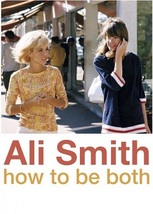 British novelist Ali Smith was announced, Wednesday, as winner of the 2015 Baileys Women’s Prize for Fiction. Shami Chakrabarti, Chair of Judges, said of Smith’s winning novel 'How To Be Both': “Ancient and modern meet and speak to each other in this tender, brilliant and witty novel of grief, love, sexuality and shape-shifting identity.” 'How to Be Both' is a novel all about art’s versatility. Borrowing from painting’s fresco technique to make an original literary double-take, it’s a fast-moving genre-bending conversation between forms, times, truths and fictions. There’s a renaissance artist of the 1460s. There’s the child of a child of the 1960s. Two tales of love and injustice twist into a singular yarn where time gets timeless, structural gets playful, knowing gets mysterious, fictional gets real – and all life’s givens get given a second chance. 'How to Be Both' was shortlisted for the 2014 Man Booker Prize, won the 2014 Goldsmiths Prize and Saltire Literary Book of the Year 2014 award. In 2007 she was elected a Fellow of the Royal Society of Literature and was made a CBE for Services to Literature in the 2014 New Year’s Honours List. 'THE TRILLIUM' FINALISTS ANNOUNCED The Trillium, sponsored by the Ontario government, awards prizes of $20,000 to authors in four categories — English language, French language, children's literature in French language and poetry in English language. Winners will be announced Wednesday, June 17, at a private dinner in Toronto. Nominated authors will read from their works at a public event on Wednesday, June 16, in the Bram & Bluma Appel Salon, Toronto Reference Library, 789 Yonge St., at 7 p.m. The finalists for the English language category: James King - 'Old Masters' (Cormorant Books) Margaret Atwood - 'Stone Mattress' (McClelland & Stewart) Dionne Brand - 'Love Enough' (Knopf Canada) Kate Cayley - 'How You Were Born' (Pedlar Press) Thomas King - 'The Back of the Turtle' (Harper Collins) Edmund Metatawbin with Alexandra Shimo - 'Up Ghost River' (Knopf Canada). The Finalists for the French language category: Martine Batanian - 'Clinique' (Éditions Marchand de feuilles) Michel Dallaire - 'Violoncelle pour lune d'automne' (Les Éditions L'Interligne) Blaise Ndala, 'J'irai danser sur la tombe de Senghor' (Les Éditions L'Interligne) Finalists for the Poetry in English language: Brecken Hancock - 'Broom Broom' (Coach House Books) Aisha Sasha John - 'THOU' (BookThug) Deanna Young - 'House Dreams' (Brick Books). Finalists for the Children's Literature in French language: Diya Lim - 'Larouspiol suivi de Les enfants du ciel' (Les Éditions L'Interligne) Micheline Marchand - 'Mauvaise mine' (Les Éditions L'Interligne). PATRICK MCGUINNESS WINS WELSH BOOK OF THE YEAR AWARD Writer Patrick McGuinness has won the Welsh Book of the Year award for the second time in four years. His memoir 'Other People's Countries' is about his childhood in the town of Bouillon on the Belgian border, where his mother was born. His debut novel 'The Last Hundred Days', a spy thriller inspired by his experience of the 1989 Romanian revolution, had won the award four years ago and was also long-listed for the Man Booker Prize. Read full article HERE. AUTHOR OF 'SHAME' FORCED TO FLEE TO AMERICA According to DW online, the Bangladeshi author Taslima Nasreen has been forced to leave her country Bangladesh after receiving Islamist death threats. Nasreen is author of 1993 book 'Shame' (Lajja), a novel which is based on the Babri Masjid episode in Ayodhya in which 2,000 people lost their lives in 1992. To read the full article, click HERE. AND TO FINISH OFF ...  There is now a Twitter account called Literary Harry that puts One Direction's long-haired, tiny-shorts-wearing, tattooed bay boy into classic and contemporary novels. I kid you not. He's had 5000 followers in just one week. What it does, is that it takes one of the millions of photos of Harry and recommends books whose covers match up with the Harry Styles photo. See HERE. Source: uk.eonline.com by Rana Asfour Last month, at one of the sessions at the Abu Dhabi International Book Fair, a female member of the audience commented that she felt the time was ripe for writers to overcome archaic ‘taboo’ issues where children’s literature was concerned. The move, she stressed, was imperative if authors were ever going to grab the attention of the contemporary, globally aware, young, Middle Eastern reader. What happens next is remarkable. As soon as this soft-spoken woman introduces herself and offers the name of her book as an example on overriding taboos, the female guest speaker, now recognising who the author is, gets up, hugs her, congratulates and thanks her for a ‘magnificent piece of work’. The woman is children’s author Samar Mahfouz Barraj and the book is ‘Red Line’, one of the author's 45 children’s books to date. Session over, I make my way to the petite, stylish, charismatic author and introduce myself. I am delighted when she agrees to meet with me the next day for a chat. And this is how it happened that I found myself engaged in a delightful conversation with this Lebanese author about her work, the huge responsibility that comes with writing for children and the reason why she thinks her books have garnered attention and amassed a following of young readers and their parents. ‘Maybe it's because I like to write books that are both serious yet humorous’, this mother of two grown up daughters tells me, ‘I know that the subjects I write about can be considered delicate or sensitive by some readers, but they are subjects that must be talked about nonetheless. I believe that there is nothing that you cannot write about when it comes to children’s books, but it depends on the format that these topics are presented. We should stop hiding behind taboos’. One of Barraj’s books, shortlisted for the 2011 Etisalat Award at Sharjah International Book Fair, is ‘When My Friend Got Sick’ which won the second prize for children’s books at the 2011 Beirut International Book Fair and the Arab Thought Foundation’s Kitabi award in 2013. The book introduces the subject of cancer to a very young audience. Understandably, she was a bit apprehensive on how it would be received by the public. ‘I totally believed in my product yet I was so conscious of societal sensitivities that I refused to run it by any of my students or even young readers until after it went into print. Yet, when the book came out, the reaction of the public was very positive. Which goes to show that publishers who exaggerate their over-protective attitude to what children should/shouldn’t read or are reluctant to rock the boat, can sometimes hinder the production of books that can be a valuable resource to children’s education’. In 2014 publishing house Dar Al Saqi took a chance on Samar Barraj’s book ‘Red Line’ dubbed as the first children’s book, in Arabic, to broach the highly sensitive subject of sexual harassment. Extensive research was carried out by Barraj (involving psychologists and child professionals) and after a rigorous round of writing and re-writing and closely working with the illustrators, ‘Red Line’ hit the shelves and was met with resounding, overnight success. As it happened Barraj had brought a copy and proceeds to read me the story. I listen, quite self-consciously at first, until I am no longer anything but caught up in her narration, her tone, the vivid pictures on the page. The book, I swear, is alive. When she’s done, she smiles. It’s like she knows her magical storytelling techniques have worked. I’m hooked; lock stock and barrel. When she’s done and I find the words, I ask how people reacted to the book when it came out. ‘I was amazed and very pleased by everyone’s reaction to this book. I wrote it because I believe it helps to educate the child in a simple way and at the same time without the intimidation, fear and shame usually associated with a serious subject such as this one. I relied on a humorous storyline, great illustrations, and wrote with educators, parents and children in mind. I have had great feedback and it turns out people wanted to talk about harassment with their children but didn’t know how or where to start and I have been told that my book has provided them with a great starting point’. ‘Although hesitant at first, schools are soon eager to bring the book into the classroom once they read its content. As a teacher, I fully understand the role of the school and believe that it should be the medium between the children, the parents and books that are of value. That is why it was important for me that schools get on board with ‘Red Line’. The objective of the book is that it helps raise children’s awareness on the subject of sexual harassment and it gives them the courage not only to deal with this situation, if it arises, but to talk about it without shame with an adult they trust. We need to educate children that some 'bad' things are out there and we need to give them the tools so they are strong enough to deal with anything in life'. Barraj began her career as a teacher after completing a BA and teaching diploma at the American University of Beirut. She went on teach for several years, which has served to fuel a passion for writing her own children’s books. She now boasts a collection of 45 published titles, has presented several training workshops and participated in various activities to promote reading among children. She is a member of the Lebanese Board on Books for Young People (LBBY).
‘I want children to pick up a book and read it mainly for the purpose of enjoyment. The workshops that accompany many of my books rely on performances and puppetry, all in the aim of demonstrating that reading can and must be primarily about creativity and fun. Our children only read books that are part of the school curriculum and that is not the same as reading for pleasure which is done away from the school environment’. Much of Barraj’s life experiences have trickled into her work. By her own admission, this is quite unavoidable for any author. Her book ‘My Grandmother Will Always Remember Me’, that won first prize for Children’s books at the 2012 Beirut International Book Fair and was translated into Spanish, is based on her childhood memories growing up with her grandparents, ‘By the Light of the Candle’ was inspired by conditions she lived through during the Lebanese Civil War and is ultimately a story about peace. Her brother proved to be the inspiration she needed for her latest book ‘Ma Ahla Alnaoum’, nominated for the IBBY honour list 2014. ‘I do go back to my experiences and draw inspiration for my stories. For example, I grew up with my grandparents and now as an adult I realise how not only is it the duty of the young to care for the elderly in the family but it is also about the grandparents showing an interest in their grandchildren in order to bridge the gap between the generations. Reading to and with children is one way of achieving that’. As if anticipating my next question on whether that means her books carry messages, Barraj is one step ahead of me and continues that ‘because the common notion is that children’s books must carry some educational message, it should be in a way that does not spoon-feed audiences or hinder creativity. Freedom and space should be allowed readers in order that they may draw their own conclusions regarding what they think and how they will deal with the world around them. My main job as a writer is tell a good story’. Two years ago Barraj embarked on a pioneering collaboration with author Fatima Sharafeddine that resulted in the young adult novel, ‘Ghadi & Rawan’. The story is about two teenage friends who try to maintain a long distance relationship while trying to overcome the difficulties of being in two separate countries, not knowing whether they will meet again. ‘As co-author of this book, it was my job to pen the voice of Rawan, the Lebanese girl who stays behind and it was only natural that Fatima should write the story of Ghadi as she herself lives between Belgium and Lebanon. It was a very exciting and fresh experience but it was also a challenging one. This is a story between a teenage boy and a teenage girl after all, and in the Arab World that doesn’t come without its own set of issues but it worked and we were able to produce a format this is engaging and modern’. In spite of the success her books have received, Barraj concedes that there is a real problem getting this generation to read and when they do, it is not Arabic books that they choose. This she attributes to a literacy problem. ‘I write in Arabic to encourage people to read in a language that I love. I have noticed that children nowadays like listening to Arabic stories but have a hard time reading them for themselves. The Arabic language curriculum is suffering and as a result children’s command of the Arabic language is not as strong as it should be’. Quickly the times passes as Barraj reads to me one more of her stories about a whale called Tooti and another about a ‘magic card’ whose graphics my almost-into-his-teens son will just love. After I say my goodbyes and step back into the real world, it dawns on me that we all love stories. And you know what? Storytellers are the really lucky ones because they get to tell them all the time and that’s a pretty cool job if you ask me. 'Finders Keepers' by Stephen King, June 2 A masterful, intensely suspenseful novel about a reader whose obsession with a reclusive writer goes far too far—a book about the power of storytelling, starring the same trio of unlikely and winning heroes King introduced in Mr. Mercedes. “Wake up, genius.” So begins King’s instantly riveting story about a vengeful reader. The genius is John Rothstein, an iconic author who created a famous character, Jimmy Gold, but who hasn’t published a book for decades. Morris Bellamy is livid, not just because Rothstein has stopped providing books, but because the nonconformist Jimmy Gold has sold out for a career in advertising. Morris kills Rothstein and empties his safe of cash, yes, but the real treasure is a trove of notebooks containing at least one more Gold novel. Morris hides the money and the notebooks, and then he is locked away for another crime. Decades later, a boy named Pete Saubers finds the treasure, and now it is Pete and his family that Bill Hodges, Holly Gibney, and Jerome Robinson must rescue from the ever-more deranged and vengeful Morris when he’s released from prison after thirty-five years. Not since Misery has King played with the notion of a reader whose obsession with a writer gets dangerous. Finders Keepers is spectacular, heart-pounding suspense, but it is also King writing about how literature shapes a life—for good, for bad, forever. 'Stalin's Daughter: The Extraordinary and Tumultuous Life of Svetlana Alliluyeva' by Rosemary Sullivan, June 4 A painstakingly researched, revelatory biography of Svetlana Stalin, a woman fated to live her life in the shadow of one of history’s most monstrous dictators – her father, Josef Stalin. Born in the early years of the Soviet Union, Svetlana Stalin spent her youth inside the walls of the Kremlin. Communist Party privilege protected her from the mass starvation and purges that haunted Russia, but she did not escape tragedy – the loss of everyone she loved, including her mother, two brothers, aunts and uncles, and a lover twice her age, deliberately exiled to Siberia by her father. As she gradually learned about the extent of her father’s brutality after his death, Svetlana could no longer keep quiet and in 1967 shocked the world by defecting to the United States – leaving her two children behind. But although she was never a part of her father’s regime, she could not escape his legacy. Her life in America was fractured; she moved frequently, married disastrously, shunned other Russian exiles, and ultimately died in poverty in Spring Green, Wisconsin. With access to KGB, CIA, and Soviet government archives, as well as the close cooperation of Svetlana’s daughter, Rosemary Sullivan pieces together Svetlana’s incredible life in a masterful account of unprecedented intimacy. Epic in scope, it’s a revolutionary biography of a woman doomed to be a political prisoner of her father’s name. Sullivan explores a complicated character in her broader context without ever losing sight of her powerfully human story, in the process opening a closed, brutal world that continues to fascinate us. 'In The Unlikely Event' by Judy Blume, June 4 In her highly anticipated new novel, Judy Blume, the New York Times #1 best-selling author of 'Summer Sisters' and of young adult classics such as 'Are You There God? It’s Me, Margaret', creates a richly textured and moving story of three generations of families, friends and strangers, whose lives are profoundly changed by unexpected events. In 1987, Miri Ammerman returns to her hometown of Elizabeth, New Jersey, to attend a commemoration of the worst year of her life. Thirty-five years earlier, when Miri was fifteen, and in love for the first time, a succession of airplanes fell from the sky, leaving a community reeling. Against this backdrop of actual events that Blume experienced in the early 1950s, when airline travel was new and exciting and everyone dreamed of going somewhere, she paints a vivid portrait of a particular time and place—Nat King Cole singing “Unforgettable,” Elizabeth Taylor haircuts, young (and not-so-young) love, explosive friendships, A-bomb hysteria, rumors of Communist threat. And a young journalist who makes his name reporting tragedy. Through it all, one generation reminds another that life goes on. 'In the Unlikely Event' is vintage Judy Blume, with all the hallmarks of Judy Blume’s unparalleled storytelling, and full of memorable characters who cope with loss, remember the good times and, finally, wonder at the joy that keeps them going. 'Tom Clancy's Under Fire' by Grant Blackwood, June 15 'Tom Clancy's Under Fire' is the latest breakneck Jack Ryan Jr. adventure novel from one of Clancy's most successful collaborators: Grant Blackwood. On a routine intelligence gathering mission in Tehran Jack Ryan, Jr. has lunch with his oldest friend, Seth Gregory, an engineer overseeing a transcontinental railway project. As they part, Seth slips Jack a key, along with a perplexing message. The next day Jack is summoned to an apartment where two men claim Seth has disappeared, gone to ground with funds for a vital intelligence operation. Jack's oldest friend has turned, they insist, leaving Jack with a warning: If you hear from Seth Gregory, call us immediately, and do not get involved. But they don't know Jack. He won't abandon a friend in need. Joined by Seth's primary agent Ysabel, an enigmatic Iranian woman who is his only clue to Seth's whereabouts, Jack's pursuit of the truth leads him across Iran, through the war-torn Caucasus, and finally deep into territory coveted by the increasingly aggressive Russian Federation. Jack soon finds himself lost in a maze of intrigue, lies, and betrayal where no one is who they seem to be - not even Seth. It seems Seth has a secret of his own. A secret that is driving him to the brink of treachery. Racing against the clock, Jack must unravel the mystery: Who is friend and who is foe? Before it's over, Jack Ryan, Jr., may have to choose between his loyalty to his friend and his loyalty to his country. 'Modern Romance' by Aziz Ansari, June 15 People today have more romantic options than at any point in human history, and thanks to social media, smartphones and online dating, our abilities to connect with these options are staggering. Yet we also have to face new and absurd dilemmas, such as what to think when someone doesn't reply to your text but has time to post a photo of a pizza on Instagram. But this transformation of our romantic lives cannot be explained by technology alone. Whereas once most people would find a decent person who probably lived in their neighbourhood and marry by the age of 23, today we spend years of our lives on a quest to find our soulmate. While Ansari has long aimed his comedic insight at modern relationships, here he teamed up with award-winning sociologist Eric Klinenberg to research dating cultures from Tokyo to Buenos Aires to Paris, crunch the quantitative data and interview some of the world's leading social scientists. The result is an unforgettable tour of the romantic landscape. 'The Festival of Insignificance' by Milan Kundera, June 18 'Enchanting ... it explores all aspects of a declining civilisation without taking any of them too seriously ... In this novel of Flaubertian seduction, free of blame and guilt, insignificance is the very essence of life.' La Repubblica
Casting light on the most serious of problems and at the same time saying not one serious sentence; being fascinated by the reality of the contemporary world and at the same time completely avoiding realism - that's 'The Festival of Insignificance'. Readers who know Kundera's earlier books know that the wish to incorporate an element of the "unserious" in a novel is not at all unexpected of him. In 'Immortality', Goethe and Hemingway stroll through several chapters together talking and laughing. And in 'Slowness', Vera, the author's wife, says to her husband: "you've often told me you meant to write a book one day that would have not a single serious word in it... I warn you: watch out. Your enemies are lying in wait." Now, far from watching out, Kundera is finally and fully realizing his old aesthetic dream in this novel that we could easily view as a summation of his whole work. A strange sort of summation. Strange sort of epilogue. Strange sort of laughter, inspired by our time, which is comical because it has lost all sense of humor. What more can we say? Nothing. Just read. |
Archives
March 2021
|


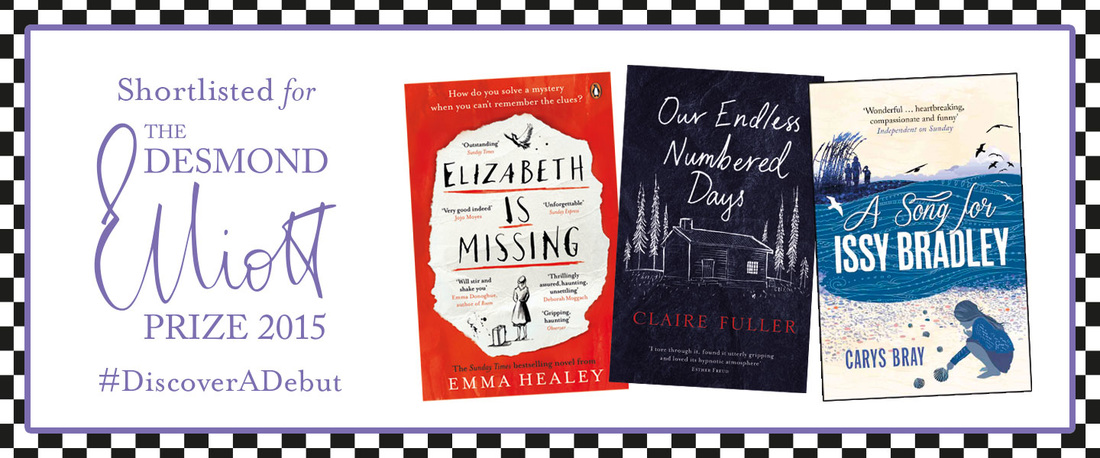
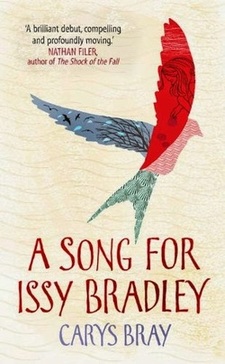
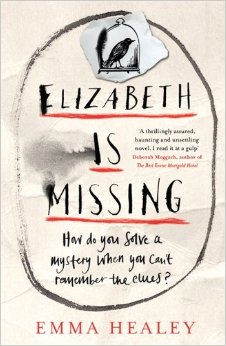
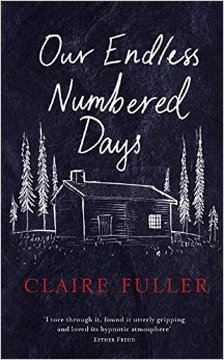
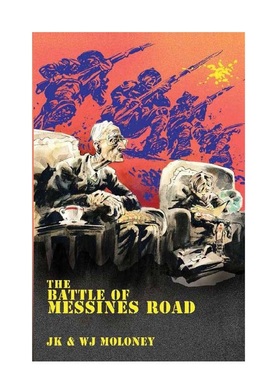


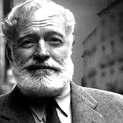
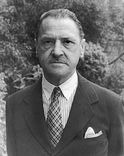



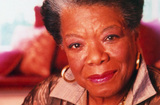
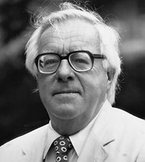
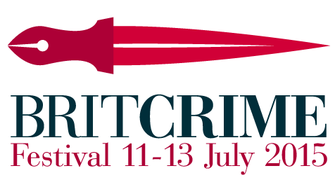
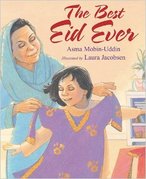
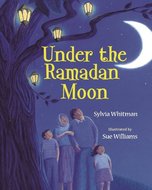
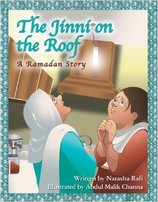
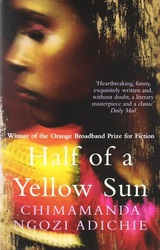
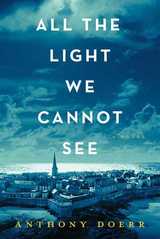
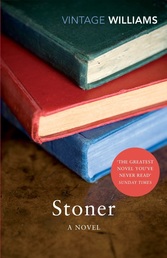
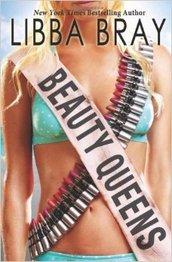
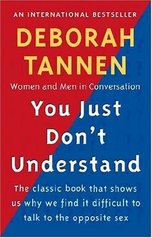
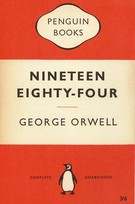
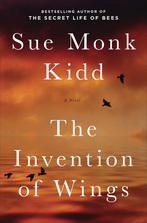

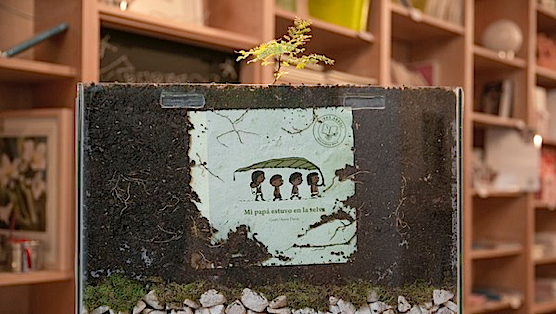

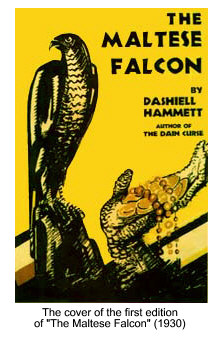


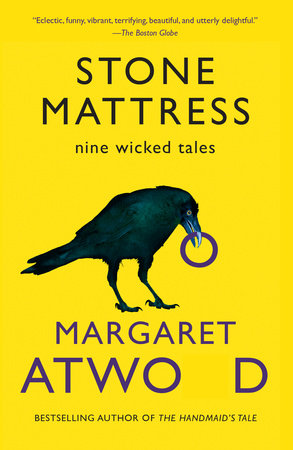
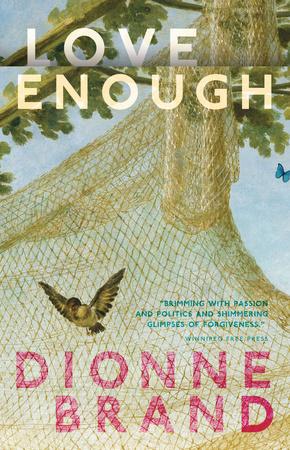
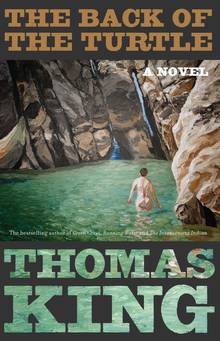
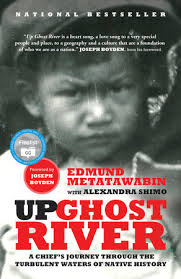
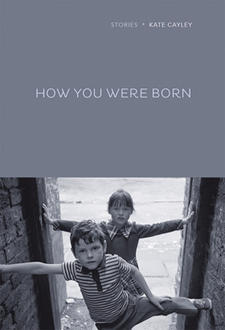
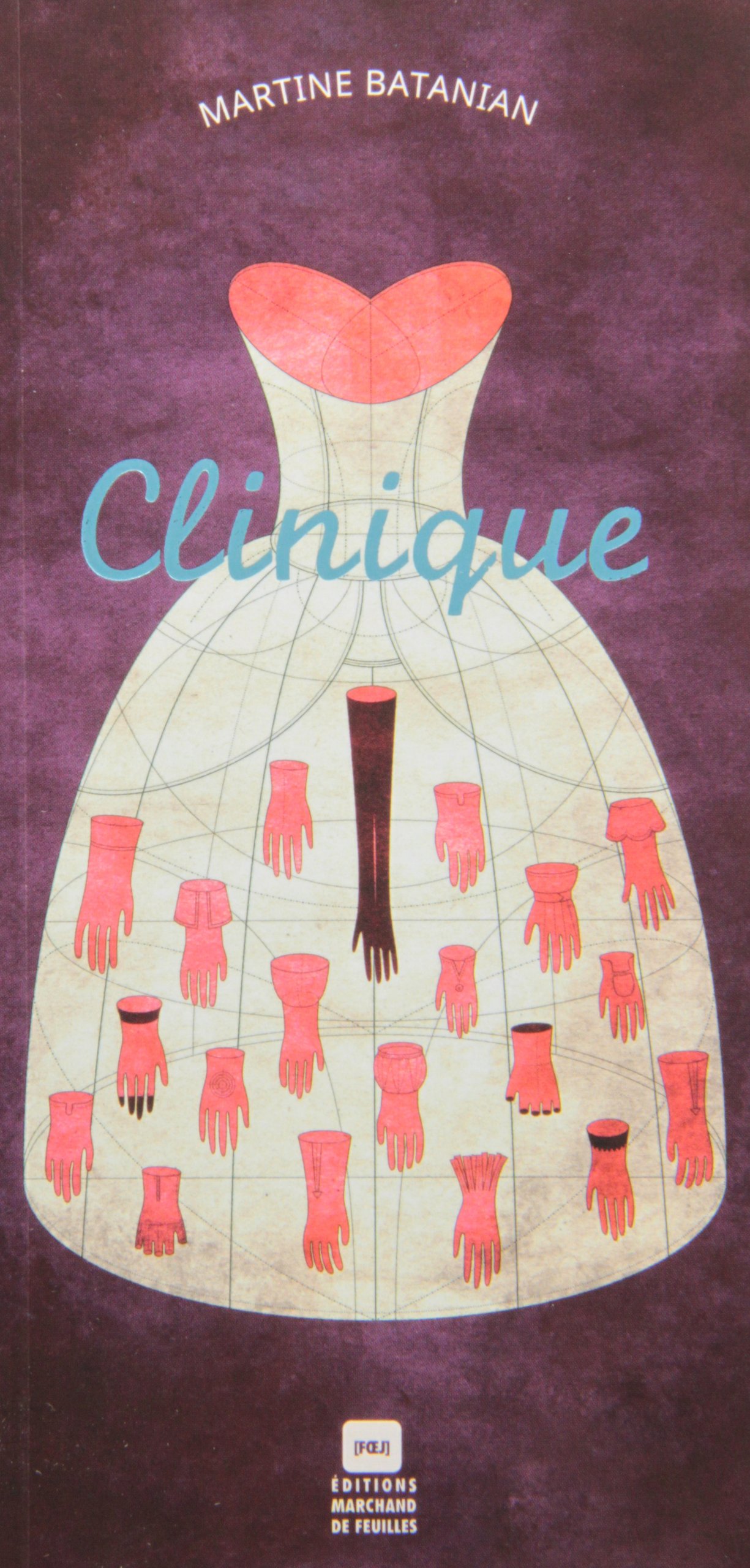

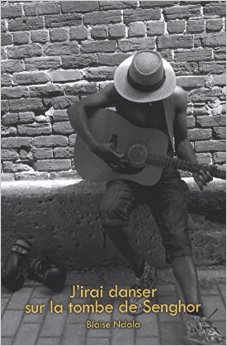
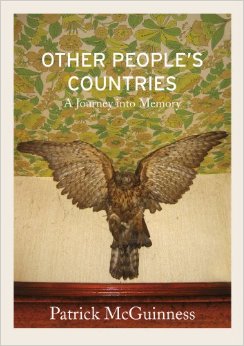
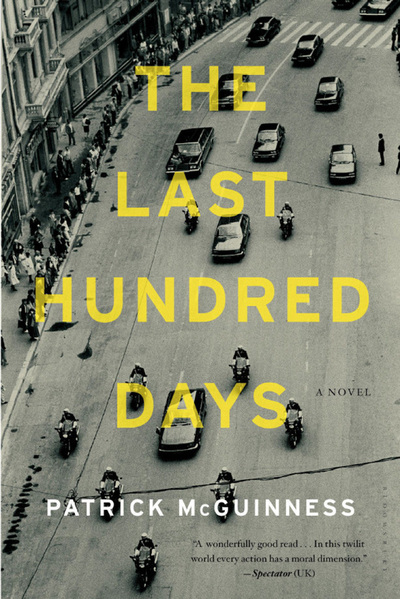
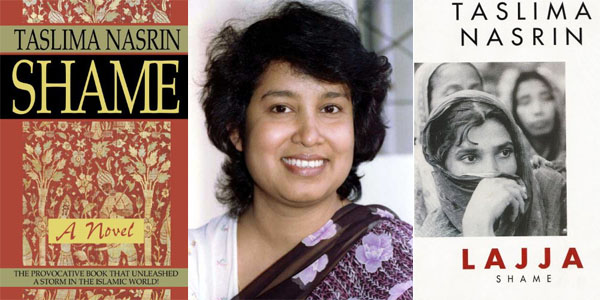

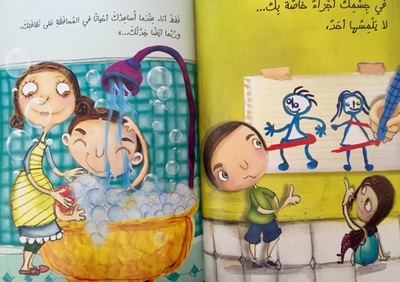
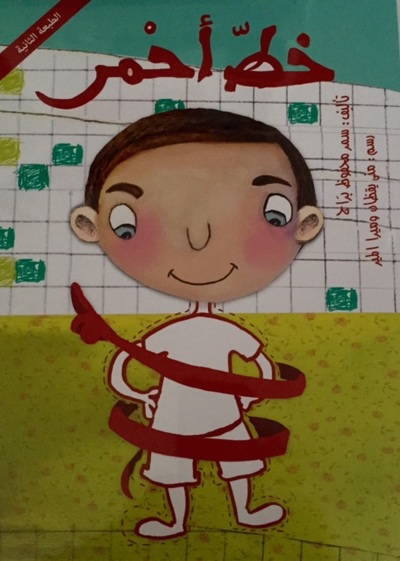
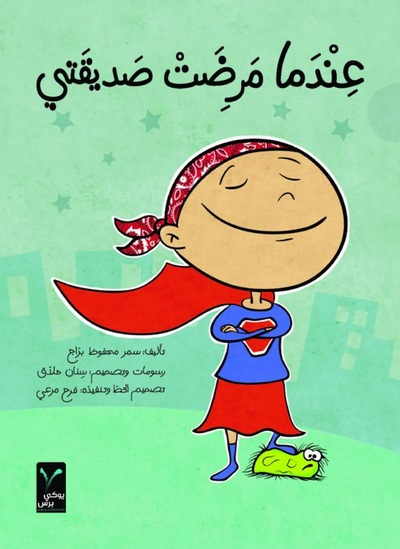
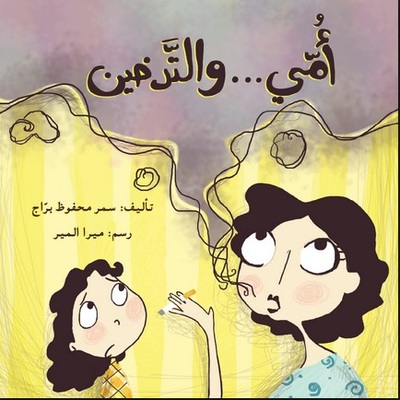
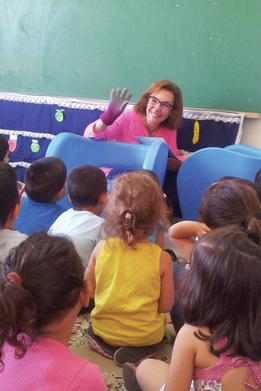
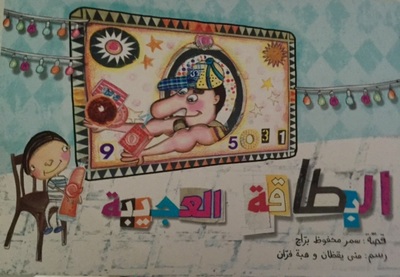
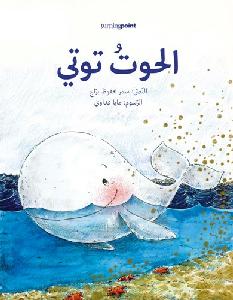
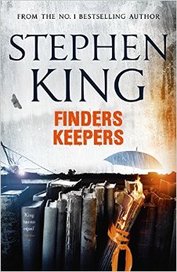
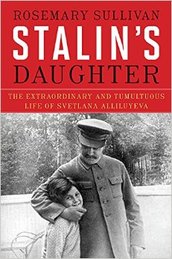
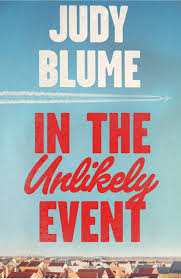
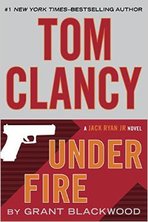
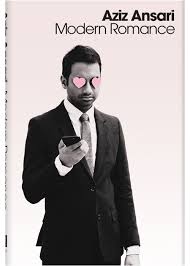
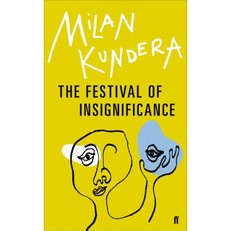


 RSS Feed
RSS Feed
